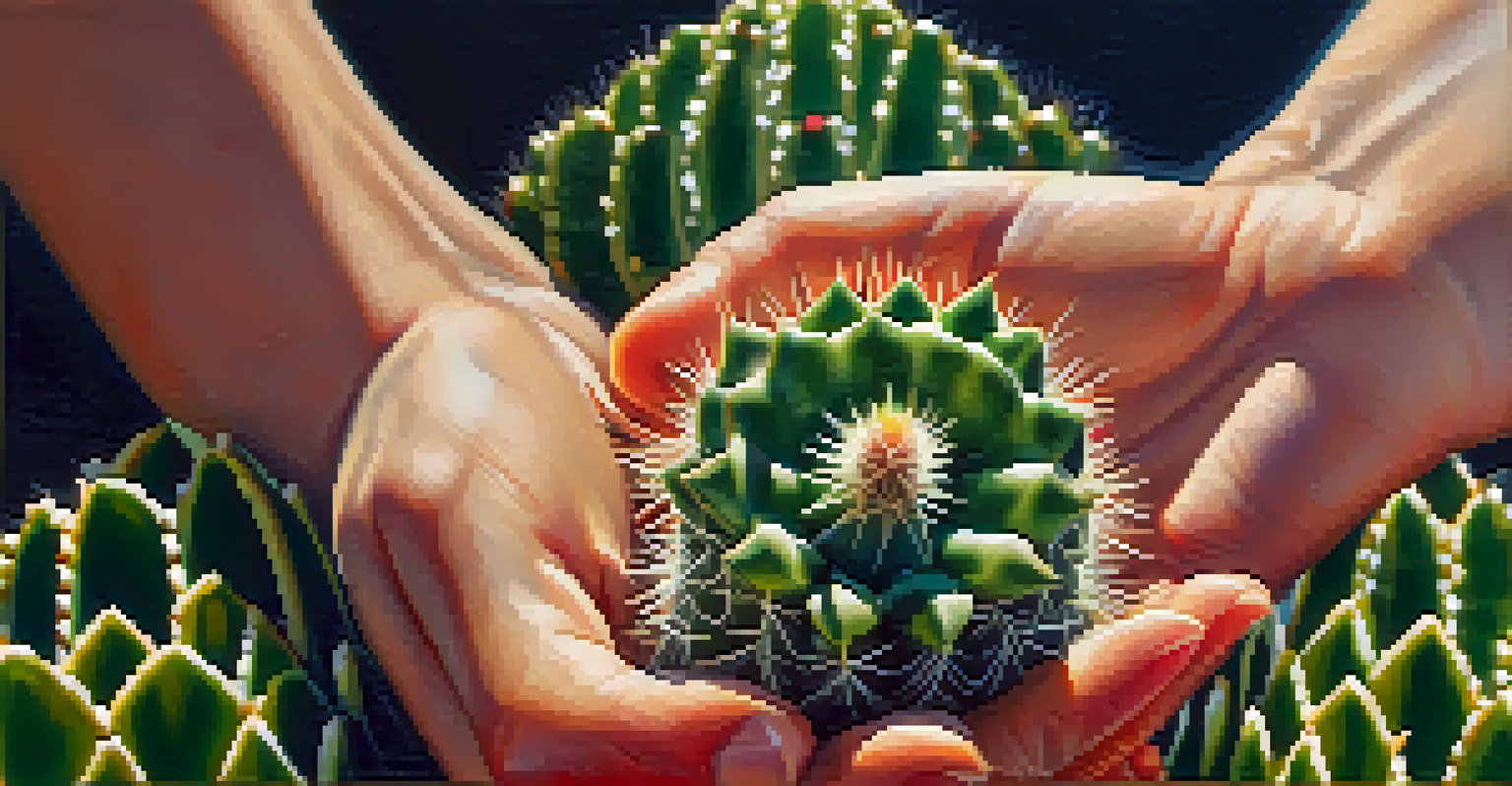Psychedelics and Psychological Resilience: The Peyote Effect

Understanding Psychedelics and Their Effects
Psychedelics are substances that alter perception, mood, and cognitive processes. Commonly known examples include LSD, psilocybin, and peyote. These compounds can lead to profound experiences that some individuals describe as life-changing.
Psychedelics are a tool for the mind, allowing us to explore the depths of our consciousness and gain insights that can lead to healing and resilience.
Historically, peyote has been used in various indigenous cultures for spiritual and healing purposes. Its active component, mescaline, is known to induce altered states of consciousness, potentially helping users confront deep-seated issues.
Research indicates that psychedelics can stimulate new neural connections, which might be crucial for developing psychological resilience. This process can enable individuals to reframe their understanding of traumatic experiences.
The Concept of Psychological Resilience
Psychological resilience refers to the ability to bounce back from adversity, trauma, or stress. It's not just about enduring tough times; it involves thriving despite challenges. People with high resilience often exhibit better emotional regulation and coping strategies.

Building resilience can be likened to strengthening muscles through exercise. Just as consistent training improves physical strength, facing and processing emotional challenges can enhance mental fortitude. This is where psychedelics like peyote come into play.
Psychedelics Enhance Resilience
Substances like peyote can facilitate deep introspection, helping individuals confront trauma and build psychological resilience.
By facilitating deep introspection and emotional release, peyote may offer a unique pathway to developing resilience. Users often report insights that help them understand their trauma and build a more robust emotional framework.
Exploring the Peyote Experience
The peyote experience is often described as a journey through one's inner landscape. Many users report vivid visual and auditory hallucinations, alongside intense emotional experiences. This journey can lead to profound insights about oneself and one’s place in the world.
Resilience is not just about bouncing back; it's about growing stronger and wiser through the challenges we face.
During a peyote session, individuals may confront personal fears or unresolved issues in a safe space. This confrontation can be a crucial step in processing emotions and fostering resilience.
Additionally, the communal aspect of peyote ceremonies can further enhance the experience. Sharing insights and feelings with others creates a support system that can promote healing and connection.
The Science Behind Peyote and Resilience
Studies on psychedelics have shown promising results in their ability to enhance mental health. Research indicates that substances like peyote can lead to lasting changes in mood and outlook, potentially increasing resilience.
One of the key mechanisms at play is the way psychedelics interact with serotonin receptors in the brain. This interaction can lead to altered mood, increased emotional openness, and enhanced cognitive flexibility, all of which are beneficial for resilience.
Integration Is Crucial Post-Experience
Reflecting on and applying the insights gained from peyote journeys is essential for strengthening emotional well-being.
While more research is needed, existing studies suggest that peyote may help reduce symptoms of anxiety and depression, further contributing to an individual's ability to cope with life's challenges.
Challenges and Considerations
While peyote holds potential benefits, it's essential to approach its use with caution. The experience can be overwhelming for some, leading to anxiety or distress during the trip. This highlights the importance of setting, mindset, and support during the experience.
Moreover, legal and ethical considerations surrounding peyote use cannot be overlooked. In many places, peyote is classified as a controlled substance, making its use potentially illegal outside of specific religious contexts.
Therefore, individuals interested in exploring peyote for resilience should seek guidance from professionals or experienced practitioners. This ensures a safe and meaningful experience that aligns with one’s personal goals.
Integrating Insights from Peyote Journeys
The insights gained from a peyote experience can be transformative, but integration is key. This process involves reflecting on the experiences and applying the lessons learned to everyday life.
Journaling, therapy, or group discussions can facilitate this integration, helping individuals process their journeys. By actively engaging with the insights, individuals can strengthen their resilience and emotional well-being.
Research Supports Psychedelic Use
Growing studies indicate that psychedelics may play a significant role in improving mental health and resilience.
It's important to remember that integration is not a one-time event but an ongoing journey. Just as resilience is built over time, so too is the understanding and application of insights gained from psychedelics.
The Future of Psychedelics in Mental Health
As interest in psychedelics grows, so does the potential for their use in mental health treatment. The increasing body of research indicates that substances like peyote can play a significant role in enhancing psychological resilience.
Future studies may further elucidate the mechanisms behind these effects, paving the way for therapeutic applications. This could lead to more widespread acceptance and use of psychedelics as tools for healing.

Ultimately, the conversation around psychedelics and mental health is just beginning. By continuing to explore their potential benefits and risks, we can unlock new avenues for supporting psychological resilience in individuals.